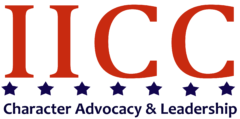Competencies Orientation Program
I. Introduction
- Brief overview of the Competencies Orientation Program.
- The importance of competencies in various fields.
- Objectives of the program.
II. Understanding Competencies
- Definition and concept of competencies.
- Types of competencies (e.g., technical, soft, leadership).
- The role of competencies in personal and professional development.
III. Identifying Personal Competencies
- Self-assessment tools and exercises.
- Identifying strengths and areas for improvement.
- Setting personal competency goals.
IV. Building Technical Competencies
- Focusing on industry-specific skills and knowledge.
- Training opportunities and resources.
- Skill development plans and milestones.
V. Developing Soft Skills
- The significance of soft skills (e.g., communication, teamwork, problem-solving).
- Soft skills development strategies and exercises.
- Practicing and applying soft skills in real-world scenarios.
VI. Leadership and Management Competencies
- Exploring leadership competencies.
- Leadership development programs and resources.
- Practical leadership challenges and case studies.
VII. Assessing Progress
- Monitoring and evaluating competency development.
- Feedback mechanisms and self-assessment tools.
- Making adjustments to competency goals and plans.
VIII. Networking and Collaboration
- The importance of networking in competency development.
- Building professional relationships.
- Collaborative projects and opportunities.
IX. Resources and Support
- Access to competency-related resources (books, courses, workshops).
- Mentoring and coaching opportunities.
- Peer support and study groups.
X. Personal and Professional Growth
- Reflecting on personal and professional growth throughout the program.
- Celebrating achievements and milestones.
- Preparing for future competency development.
XI. Conclusion
- Recap of key takeaways from the Competencies Orientation Program.
- Encouragement for continued competency development.
- Acknowledgment of participants’ dedication and commitment.
XII. Feedback and Evaluation
- Gathering feedback from participants.
- Assessing the effectiveness of the program.
- Suggestions for program improvement.
XIII. Next Steps
- Providing information on advanced competency development programs or opportunities.
- Encouraging ongoing self-directed learning and growth.
This outline serves as a framework for a Competencies Orientation Program and can be adapted and expanded based on the specific goals, audience, and resources available for the program.
